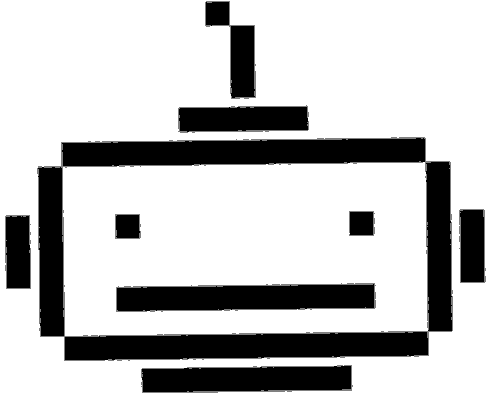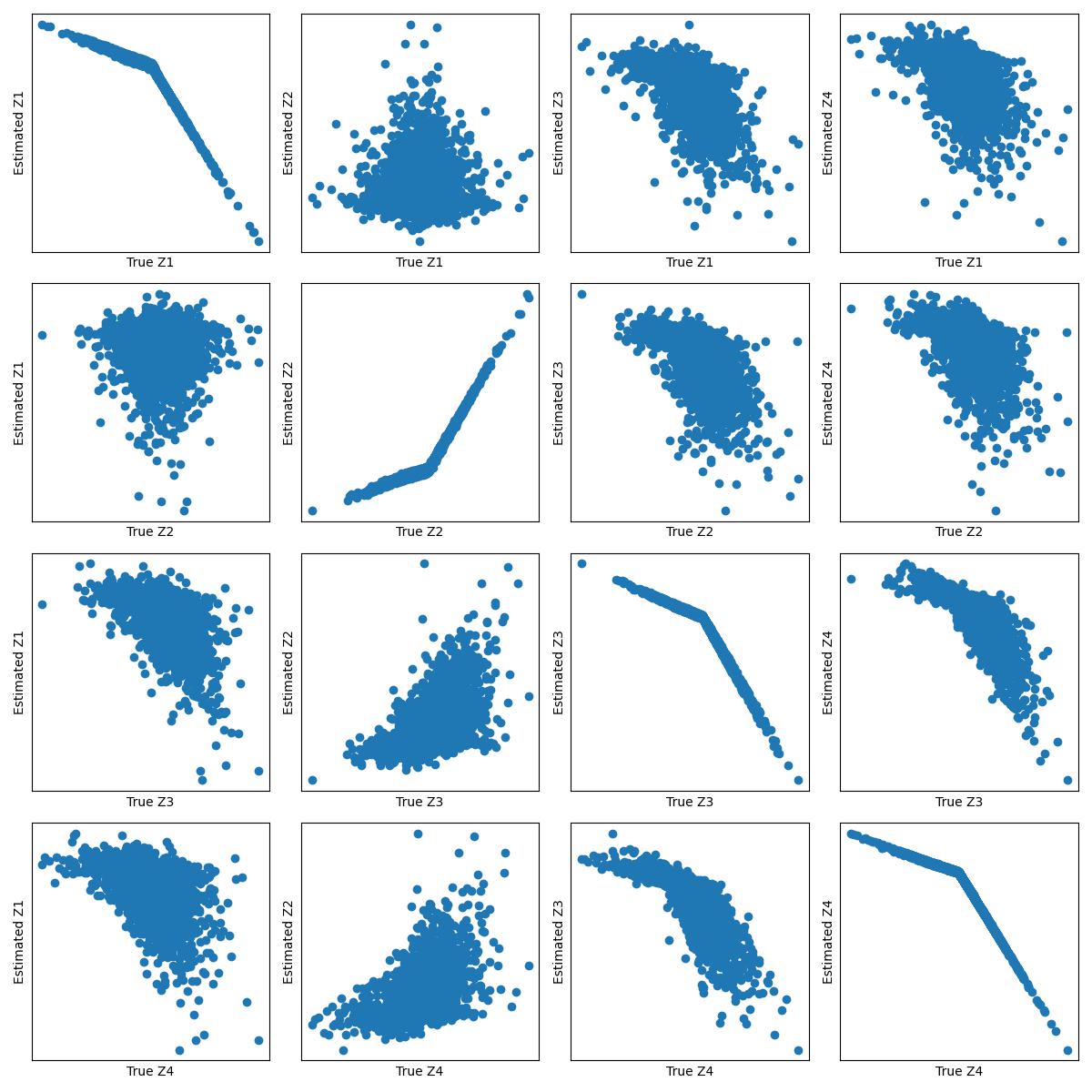A General Framework for Constraint-based Causal Learning

0

Sign in to get full access
Overview
- Presents a general framework for constraint-based causal learning
- Aims to learn causal models from observational data using fewer conditional independence tests
- Provides a unified view of existing constraint-based causal discovery algorithms
Plain English Explanation
This paper introduces a general framework for constraint-based causal learning. The goal is to learn causal models from observational data, which means data collected without actively intervening in the system. The key idea is to use fewer conditional independence tests than traditional constraint-based methods, while still being able to discover the underlying causal structure.
The framework provides a unified view of existing constraint-based causal discovery algorithms, allowing them to be understood and analyzed within a common mathematical formulation. This can help researchers develop new and improved causal discovery methods.
Technical Explanation
The paper introduces a general framework for constraint-based causal learning that aims to learn causal models from observational data using fewer conditional independence tests than traditional approaches. The framework is based on the idea of causal constraints, which are logical statements that describe the causal relationships in the system.
The authors show that by exploiting the structure of these causal constraints, it is possible to discover the underlying causal model using a more efficient search process. They provide a formalization of the framework and prove several theoretical properties, such as the ability to learn the true causal model under certain assumptions.
The paper also demonstrates how this general framework can be used to unify and analyze a wide range of existing constraint-based causal discovery algorithms, providing a deeper understanding of their strengths and limitations.
Critical Analysis
The authors acknowledge that the proposed framework relies on certain assumptions, such as the availability of accurate conditional independence tests and the existence of a true causal model that satisfies the causal constraints. In practice, these assumptions may not always hold, and the performance of the framework may be affected by factors such as sample size, data quality, and the complexity of the underlying causal structure.
Additionally, the paper does not provide a comprehensive evaluation of the framework's performance compared to other causal discovery methods. While the theoretical analysis is insightful, more empirical studies would be needed to assess the practical advantages and limitations of the proposed approach.
Conclusion
This paper introduces a general framework for constraint-based causal learning that aims to learn causal models from observational data using fewer conditional independence tests. The framework provides a unified view of existing constraint-based causal discovery algorithms, which can help researchers develop new and improved methods.
While the theoretical foundations of the framework are well-established, more empirical evaluation is needed to understand its practical performance and limitations. Overall, the paper represents an important contribution to the field of causal discovery, with the potential to advance our understanding and capabilities in this area.
This summary was produced with help from an AI and may contain inaccuracies - check out the links to read the original source documents!
Related Papers


0
A General Framework for Constraint-based Causal Learning
Kai Z. Teh, Kayvan Sadeghi, Terry Soo
By representing any constraint-based causal learning algorithm via a placeholder property, we decompose the correctness condition into a part relating the distribution and the true causal graph, and a part that depends solely on the distribution. This provides a general framework to obtain correctness conditions for causal learning, and has the following implications. We provide exact correctness conditions for the PC algorithm, which are then related to correctness conditions of some other existing causal discovery algorithms. We show that the sparsest Markov representation condition is the weakest correctness condition resulting from existing notions of minimality for maximal ancestral graphs and directed acyclic graphs. We also reason that additional knowledge than just Pearl-minimality is necessary for causal learning beyond faithfulness.
Read more8/15/2024


0
Causal Discovery with Fewer Conditional Independence Tests
Kirankumar Shiragur, Jiaqi Zhang, Caroline Uhler
Many questions in science center around the fundamental problem of understanding causal relationships. However, most constraint-based causal discovery algorithms, including the well-celebrated PC algorithm, often incur an exponential number of conditional independence (CI) tests, posing limitations in various applications. Addressing this, our work focuses on characterizing what can be learned about the underlying causal graph with a reduced number of CI tests. We show that it is possible to a learn a coarser representation of the hidden causal graph with a polynomial number of tests. This coarser representation, named Causal Consistent Partition Graph (CCPG), comprises of a partition of the vertices and a directed graph defined over its components. CCPG satisfies consistency of orientations and additional constraints which favor finer partitions. Furthermore, it reduces to the underlying causal graph when the causal graph is identifiable. As a consequence, our results offer the first efficient algorithm for recovering the true causal graph with a polynomial number of tests, in special cases where the causal graph is fully identifiable through observational data and potentially additional interventions.
Read more6/5/2024


0
Large Language Models for Constrained-Based Causal Discovery
Kai-Hendrik Cohrs, Gherardo Varando, Emiliano Diaz, Vasileios Sitokonstantinou, Gustau Camps-Valls
Causality is essential for understanding complex systems, such as the economy, the brain, and the climate. Constructing causal graphs often relies on either data-driven or expert-driven approaches, both fraught with challenges. The former methods, like the celebrated PC algorithm, face issues with data requirements and assumptions of causal sufficiency, while the latter demand substantial time and domain knowledge. This work explores the capabilities of Large Language Models (LLMs) as an alternative to domain experts for causal graph generation. We frame conditional independence queries as prompts to LLMs and employ the PC algorithm with the answers. The performance of the LLM-based conditional independence oracle on systems with known causal graphs shows a high degree of variability. We improve the performance through a proposed statistical-inspired voting schema that allows some control over false-positive and false-negative rates. Inspecting the chain-of-thought argumentation, we find causal reasoning to justify its answer to a probabilistic query. We show evidence that knowledge-based CIT could eventually become a complementary tool for data-driven causal discovery.
Read more6/12/2024


0
Causal Representation Learning from Multiple Distributions: A General Setting
Kun Zhang, Shaoan Xie, Ignavier Ng, Yujia Zheng
In many problems, the measured variables (e.g., image pixels) are just mathematical functions of the latent causal variables (e.g., the underlying concepts or objects). For the purpose of making predictions in changing environments or making proper changes to the system, it is helpful to recover the latent causal variables $Z_i$ and their causal relations represented by graph $mathcal{G}_Z$. This problem has recently been known as causal representation learning. This paper is concerned with a general, completely nonparametric setting of causal representation learning from multiple distributions (arising from heterogeneous data or nonstationary time series), without assuming hard interventions behind distribution changes. We aim to develop general solutions in this fundamental case; as a by product, this helps see the unique benefit offered by other assumptions such as parametric causal models or hard interventions. We show that under the sparsity constraint on the recovered graph over the latent variables and suitable sufficient change conditions on the causal influences, interestingly, one can recover the moralized graph of the underlying directed acyclic graph, and the recovered latent variables and their relations are related to the underlying causal model in a specific, nontrivial way. In some cases, most latent variables can even be recovered up to component-wise transformations. Experimental results verify our theoretical claims.
Read more8/13/2024